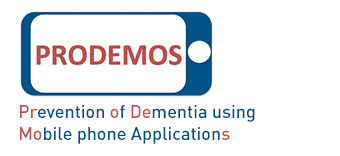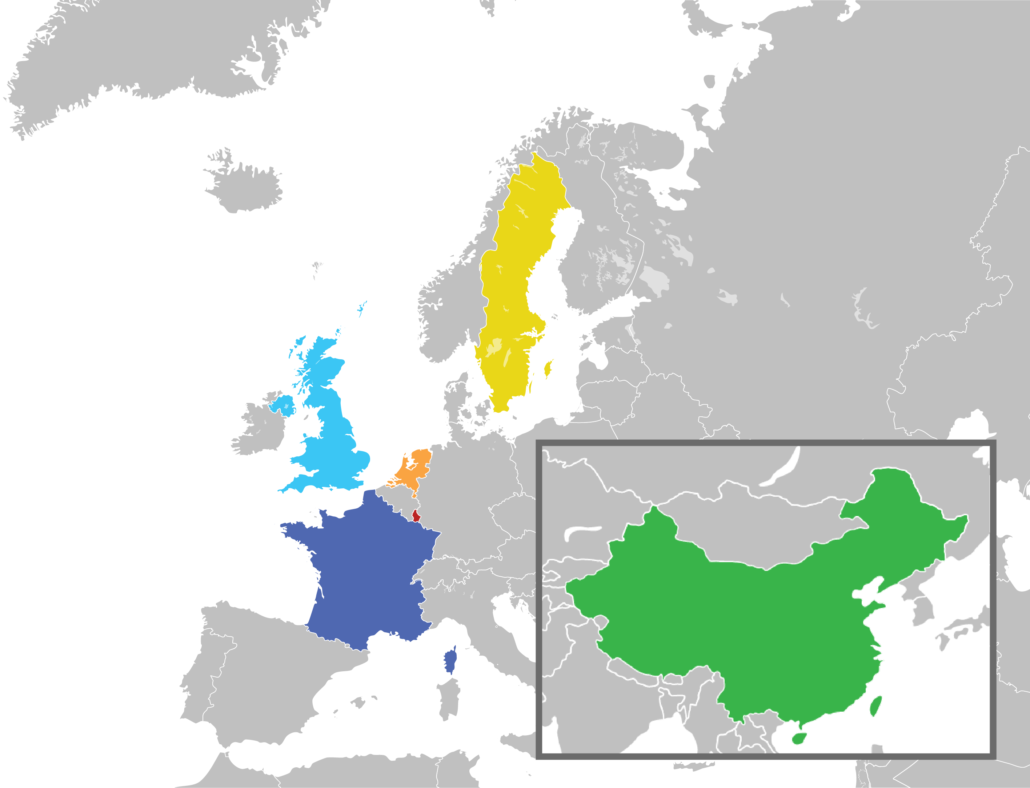Project outline
We build upon the evidence-based HATICE Internet platform that we have developed in the FP-7 funded HATICE project (www.hatice.eu). This platform helps people to improve their risk factors for cardiovascular disease and dementia, such as hypertension, high cholesterol, diabetes mellitus, unhealthy diet, smoking and physical inactivity using an interactive self-management strategy.
We adapted this platform to:
1) be used as a mobile Health application;
2) focus specifically on the prevention of cognitive decline and dementia
3) be socio-culturally appropriate for the use in the UK and China and allow for flexible adaptation for populations with other socio-cultural backgrounds
The following three phases were followed.
PRODEMOS partners are from all over Europe and China
Project phases
In the first phase of PRODEMOS, we took multiple steps to gather key information for the optimal adjustment and implementation of the mHealth platform. We specifically focused on crossing cultural barriers for dementia prevention by using qualitative research methods in two settings:
- A population with low socio-economic status in high income countries (UK and the Netherlands)
- A population in a middle income setting (Greater Beijing, China)
A purposive sample of potential participants in both settings participated in semi-structured interviews to explore cultural, socio-economic and educational barriers and facilitators of dementia prevention for the following two main topics:
- The general concept of self-management of risk factors to prevent dementia.
- Views on the acceptability and usability of the mHealth platform prototype for sustained lifestyle behaviour change.
As we focus on the implementation of an intervention, involving the users and developers of the intervention was essential in the design and conduct phases of the project.
Preliminary outcomes of the qualitative research iteratively fed into the cycles to adapt the mHealth platform to create a final platform that is ready to be tested in the implementation trial. AMC educated and trained CMU researchers for the execution of the qualitative research in the local setting.

